Gluten = Depression
Patients with depression are told they have a chemical imbalance. I have found numerous clients who are suffering from depression and anxiety to be gluten sensitive. When we eliminate gluten from their life, they become a whole new person. How could a food cause depression? Let’s take a look.
Gluten is the protein found in wheat, rye, barley and oats. Have you put flour and water together to make your own gooey paste? In Poland, they use this for wallpaper paste. I’m not putting that “gummy” paste in my body; it causes way too much inflammation. After the digestive tract, the most commonly affected system to be affected by gluten is the nervous system. It is thought that depression can be caused by gluten in one of two ways.The first area addresses the inflammatory changes gluten can cause. A gluten sensitive individual’s immune system responds to the protein gliadin. Unfortunately, that protein is similar in structure to other proteins present in the body, including those of the brain and nerve cells. A cross reactivity can occur whereby the immune system “confuses” proteins in the body for the protein gliadin. This is called cellular mimicry and the result is the body attacking its own tissues with inflammation resulting. When inflammation happens in the brain and nervous system, a variety of symptoms can occur, including depression. Research shows us that patients with symptoms involving the nervous system suffer from digestive problems only 13% of the time. This is significant because mainstream medicine equates gluten sensitivity almost exclusively with digestive complaints. Please note, that even though most doctors will dismiss a gluten allergy/sensitivity if you don’t have any digestive issues, this is not true. You can have problems with gluten that show up in other parts of your body, not just the digestive track. Gluten can attack any organ: thyroid, gallbladder, nervous system, joints (arthritis), cellular membrane (multiple sclerosis), you name it.In a study examining blood flow to the brain, patients with untreated celiac disease were compared to patients treated with a gluten-free diet for a year. The findings were amazing. In the untreated group, 73% had abnormalities in brain circulation by testing while only 7% in the treated group showed any abnormalities. The patients with the brain circulation problems were frequently suffering from anxiety and depression as well.
In addition to circulation problems, other research looks at the association between gluten sensitivity and its interference with protein absorption. Specifically the amino acid tryptophan can be deficient, which we learned in chapter one is essential for brain health. Tryptophan is a protein in the brain responsible for a feeling of well-being and relaxation. A deficiency can be correlated to feelings of depression and anxiety. 90% of serotonin production occurs in the digestive tract. So it makes sense that food might have an effect, either positive or negative, on serotonin production. Our society is too willing to accept a “chemical imbalance” as an explanation for their symptoms and instead of getting to the root cause of the condition, simply swallow a pill – a pill that in the case of anti-depressants has very dangerous and undesired side effects.
The frequency with which clients can taper off their anti-depressants is considered “unbelievable” too many mainstream doctors, yet it happens regularly. How is that possible? Well, it is important to look at the root cause of the depression, rather than just putting a “Band-Aid” over the problem. Instead, I find success with a gluten-free diet as the main path to recovery, along with a therapeutic dose of amino acids, such as 5-HTP or GABA, along with Vitamin B and other key nutrients.
Food allergies can also affect our children’s behavior. Encounters with allergens stimulate the release of serotonin and histamine from mast cells in the body. This increase affect alters arousal, attention, activity and vigilance. As a result, a highly allergic child can be either quite sluggish or hyperactive, depending upon the system of the allergic reaction. Eliminating all allergens from the diet will eliminate hyperactivity or lethargy and inattention.
The increase in celiac disease might be because there is more gluten being consumed: “gluten enteropathy” is another term for this illness. Gluten is useful in cooking because it promotes a resistant, “chewy” mouth-feel to a lot of foods including baked goods. But, as the increase in consumption of convenience foods (such as pizza, granola bars, cereal) we increase the amount of gluten-containing grains on a daily basis. BUT, when I tell clients to eat “gluten free” they often grab all the “gluten-free” pre-packaged foods on the shelf…but that most likely will cause weight gain and slow the healing process in your gut.
Rice flour, the common flour substitute in gluten-free products, is higher in calories, higher in carbohydrates, and lower in nutrients than regular flour. It can cause more inflammation in our body. So my recommendation is to use make your own healthier options by using almond flour and coconut flour, which are very easy to digest. The healthy fats in nuts actually are nourishing to our brain. To read more check out: Secrets to Controlling Your Cravings Weight and Mood.
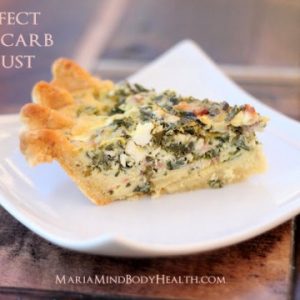
Greek Quiche
Ingredients
- 7 ounces feta cheese
- 10 ounces fresh spinach chopped
- 1/4 cup onion chopped
- 2 tablespoons coconut oil or butter
- 5 large eggs
- 1 clove garlic minced
PIE CRUST:
- 3 cups blanched almond flour
- 1/2 teaspoon Redmond Real salt
- 4 tablespoons butter cold and cut into small pieces
- 1 large egg
- 1 clove garlic crushed
Instructions
- Preheat oven to 325 degrees F. In a medium-sized bowl, mix together almond flour, salt, butter, garlic, and egg. Press pie crust into a pie dish or tart pan. Bake the crust for 12-15 minutes, or until it starts to lightly brown.
- Sauté the chopped spinach and onions in oil until the onions are translucent. Turn the heat off and add the cheese and eggs to the spinach; mix until well combined. Pour the spinach filling into the pie crust and bake for 15-20 minutes, or until the filling is set and the eggs are fully cooked through.
Nutrition
Testimony of the Day
In 2001 I felt like crap! Depression, anxiety, exhaustion, adrenal fatigue, hypothyroidism, mononucleosis, candida over growth, Celiac’s disease, and an abundant of other food sensitivities. All unknown at the time. I just knew I hurt mentally, emotional, spiritual, physically, psychologically and I didn’t know why. No one did. I was a full blown vegan.
With Maria’s guidance of supplements and staying 100% compliance to her diet, my gut has finally healed, my emotional health completely stabilized, my acne gone, excess pounds gone, brain fog gone, tired / fatigue gone. I am the healthy image I longed to be. It took time, persistence, patience, and self-discipline. It has been a journey that has paid off!” Lacy
Click HERE to start your journey to a keto-adapted diet!

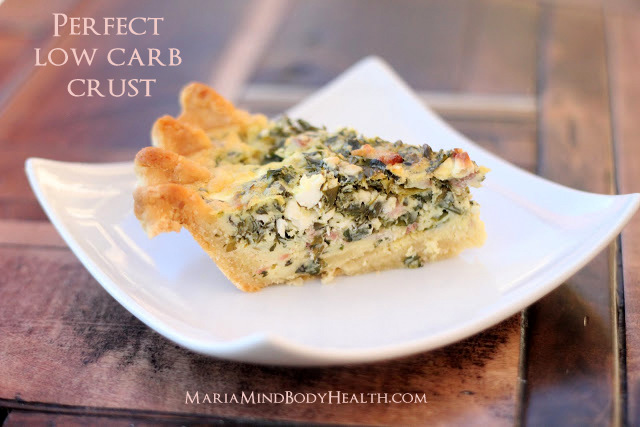


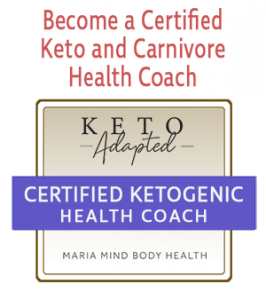

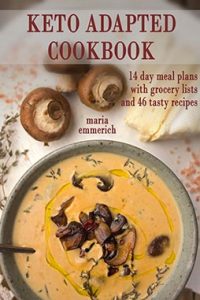





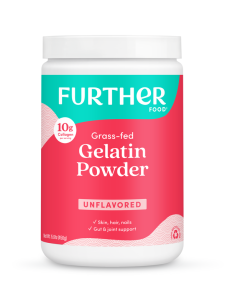

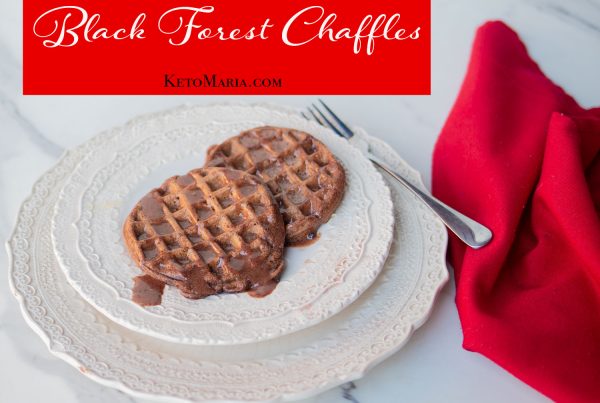


This was/is the case for me. I had unexplained depression and once I figured out about the gluten connection, and removed gluten from my diet, the depression went away. I also have an autoimmune (Hashimoto) connection to gluten. The swelling in my thyroid went down an inch and a half after just one month off of gluten. I wish I had known about this connection looooong ago. The damage that has been done to my thyroid at this point is permanent so I continue to need medication. My hope at this point is that I have a least halted further potential damage, and possible secondary autoimmune disorders, by eating a gluten free diet. Thank you for the information on your site.
You are welcome! Thanks for writing!!!
Thank you for this stunning information! I’m learning so much from your blog, again, thank you!
You are welcome!!! Knowledge is power!
I felt a significant change in anxiety when I took gluten out of my life. Thank you for sharing this! I love the blog!
Can you substitute almond flour and coconut flour without making adjustments? This looks yummy!
Thank you all soooo much for your kind words!
No, coconut flour is totally different. I have conversion charts and info in my new color cookbook:)))
Is Bob Mills oat flour really gluten free and ok. I know it is higher in carbs.
Yes, but I don’t recommend any grains…
Can you recommend a bread to send with my son for lunch? I have tried several bread recipes with almond and coconut flour but he doesn’t like them, and they don’t really hold up for a 6 year olds sandwich. I also tried the flax buns which I like, but again he will not eat them. Was hoping I could use the gluten free oat flour and make a decent bread. I do not really feel comfortable with the packaged store bought gluten free breads.
How about a grain free wrap/tortilla/flat bread type of thing?
This flat bread recipe looks very promising…
http://byebyegluten.blogspot.com/2012/01/easy-grain-free-flat-bread.html
Or, maybe something like this…
http://www.meandjorge.com/2012/01/wheat-belly-and-flaxseed-wraps.html
Maybe since these are flatter than buns he would like them, especially done up as quesadillas. Does he like quesadillas? Maybe you could come up with a few variations of quesadillas that he would like.
Good luck!
Wow! I had no idea! Thanks for this very interesting post.
Also, I’ve been enjoying your recipes from LCAF cookbook. I made your corn dog recipe yesterday. So good!!!
I posted a picture on my blog.
http://happytexans.blogspot.com/
I have a question I hope you can answer. I don’t know who to ask. I’ve been low carb fro about 4 weeks and cut out grains but my chest has been breaking out since I changed my eating habits. Any idea what could be the cause?
Thanks!
Thanks Kelly!
Your breaking out is most likely your body detoxing and liver cleansing. When you are eating wheat, your liver produces anti bodies and since you are no longer eating wheat, your body goes into detox:)
Wow what a nice post.Thanks for gives this information.I fell glad to come at here.Can you more share with me.I have many ideas about it.I will come back as soon.
Thanks for more sharing…..
Laith Salma
Laith, I have a whole bunch of info in my book Secrets to Controlling Your Weight Cravings and Mood.
Happy reading!
Maria, I want to ask you a question if you wouldn’t mind. My husband and son both get really tired after eating meals, regardless of what they eat. This is especially difficult for my son because he’s falling asleep during his classes after lunch. I don’t know why this happens, or what I can do about it. Can you suggest something for me to try with them? Thanks.
When you are tired after meals, you are making tryglycerides rather than creating energy in your cells.
Adding 3 grams of l-carnitine in the AM on empty stomach with help A LOT! It shuttles triglycerides to the mitochondria of your cell where you burn it.
You can find it on sale here: http://astore.amazon.com/marisnutran05-20/detail/B000AR8PYG
I write a lot about it in my Metabolism book:)))
Thank you so much! We’ll give it a try.
Can you take that with Armours? I’m on Thyroid meds, which you also have to take first thing on an empty stomach.
Quick question: My 8 year old daughter showed a high Suberate marker on her Organic Acids test and Carnitine was one of her suggested supplements because of that. I have been giving her the liquid NOW brand, but at night, right before bed with her Cod Liver Oil, Mag and Colostrum. Should I be giving it to her in the mornings? Thanks for all the info! I ordered your 3-in-1 hardcover yesterday from Amazon. I made the protein waffles last night (with some vanilla Paleo Meal from DFH since I didn’t have any other Whey) and both my girls liked them.
L-Carnitine can be energizing so it might be best in the morning. Thanks! 🙂
I actually recommend other amino acids like l-tyrosine for hypothyroid patients.
i love this tart!! i eat it for breakfast and it really keeps me full much longer than anything else. i used coconut oil in the crust and put some herbs in it. i also cut the crust by half because i typically don’t love crust but this one is sooo good!
Thank you!
This was delicious. I made a half od the recipe and it’s already gone 🙁
Thanks Alona! 🙂
Hey Maria!!! 🙂 I was wondering how big of a pie plate would we need for this?? I would love to make it but I don’t know how big of a pie plate I would need. Thank you muchly!!!! 🙂
I used a regular 9.5″ pie pan. Thanks! 🙂
I’m thinking of using this base for some savory tartlets to take to a holiday party. Have you ever used the crust this way? My main concern is the crust holding together once all baked.
Yes, that should work just fine. Thanks! 🙂
Hi there.
I am new to your blog and am quite happy that I found it.
However, I keep coming across articles/posts about gluten and its connection to mood/depression.
My issue is that I’ve been gluten-free since 2007 and yet my mood is horrible, especially in the last month. I stopped taking anti-depressants and feel absolutely horrible. On top of that, I have amenorrhea (I am anovulatory and have been for about 1.5 years)…I don’t know if you have any advice…or if maybe you could point me in the direction of some good references, so that I can get better…
Thanks so so so much.
Monika
Hi! Sounds like a bit of adrenal fatigue. I suggest Bifido bacteria 3 times a day which builds serotonin… Serotonin starts in the small intestine. You may also want to get your ferritin level checked. You may not be absorbing iron into the cells. A progesterone test would also be helpful. Low progesterone causes anxiety, poor sleep and lack of menstrating. Good luck! 🙂
Hi darling Maria and Maria fans! Hubby’s bday is today and we follow a mostly Ketogenic diet, grain and sugar free….. I know peanuts aren’t really on that but he wanted a Peanut butter pie for his bday and so we’re adapting the crust in this recipe (we’re means ME) and substituting 1T swerve for the garlic….when it’s cool (came out great by the way) I will fill it with natural peanut butter whipped up with heavy whipping cream and top with some sugar free cacao bar shavings.
Thanks for all your great stuff on here! I point EVERYONE to your blog and FB page and books, and I’m enjoying my Kindle version of Keto-adapted right now!
God bless!
Hi Maria! I found your blog only a few weeks ago, and have been eating keto-adapted ever since. I have purchased several of your books, one of your online classes, and many of the supplements you recommend. I have had debilitating depression for years and have tried EVERYTHING. I have celiac, so I have been gluten-free for about ten years now, but it has not helped the depression. I have noticed just in the past few days that the depression is lifting some with the keto diet. I have hope for the future! I am writing with a weird question. I take a bottled water and add pure vitamin C powder (about 1/3 tsp. and some stevia concentrate to make it sweet, and I drink it all day. I actually crave it like crazy. And when I eat any protein or fat, the cravings triple and I want to guzzle it down right away, which then makes my stomach upset because I am drinking while eating my protein and fat. Have you ever heard of this before? Why would I crave it so much? Do you think my body thinks I am drinking sugar, even though it is only stevia concentrate? Thanks, in advance.
It could be low iron. I would get your ferritin tested.
Interesting – I will look into it. Thanks for your response 🙂
Hi Maria, I made this quiche yesterday and it came out great! Is it possible to substitute regular almond meal instead of the blanched almond meal? I try to eat exclusively organic produce and the blanched almond flour isn’t organic or even unsprayed. I have purchased 5 lbs., but I don’t want to make it a staple of my diet.
Thanks
Thanks! Yes, it will just have a slightly courser texture. 🙂
Best recipe yet. I made the cinnamon coffee cake first and then the Greek quiche. Two amazing recipes. My husband (who is really not into healthy eating) loved them both.
I am trying out some recipes every week and will hopefully transition my family to a healthier diet with me.
I am gluten and lactose intolerant…but I actually do well with some dairy -specifically feta and buttermilk. Other dairy products, including yogurt act like drano in my digestive track. Any thoughts as to why feta and buttermilk act differently than other dairy when I ingest them?
Hmm, not sure about that (feta is actually one of the higher lactose cheeses). Thanks! 🙂
Okay, I have experimented and looked into this more. I can definitely tolerate some types of dairy and others not at all. So it can’t be lactose intolerance (although I thought it was originally). I’ve been including a lot of your recipes and recommendation in my diet and my digestion is definitely more normal. Now I can digest dairy products from dairy that hasn’t been heated more than the medium range. There are different cultures used to make cheese and the products made using a mesophilic cultures, are mostly the ones I can tolerate. I don’t know if it’s the culture that digests the part I have trouble with or if there is some change in dairy when it’s heated very high that makes it hard for me to digest. Either way, I love putting back at least some dairy into my menus!
Awesome! 🙂
Going to try omitting the Feta and adding sausage, making it dairy-free. I have a bunch of eggs to get used.
My family and I absolutely love this quiche!
Thank you!